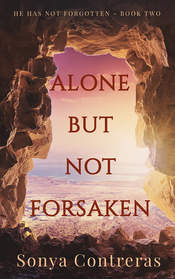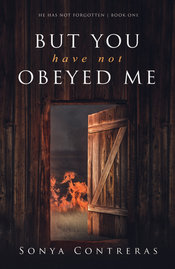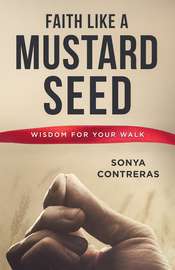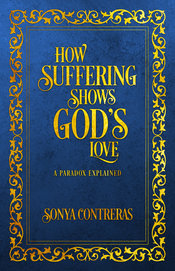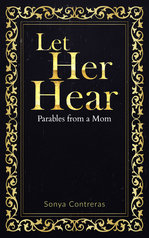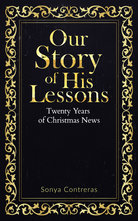- Home
- Index
-
My Books
- Book List
- Writing/Reading Articles Listing
-
My Short Stories
- What God Lost
- What God Lost — Part 2
- When Hope Was Lost
- A Battle in the Heavens
- To Live Forever
- Finding Peace
- Empty Hands
- From Fire and Thunder to Love and Submission
- The Coming One
- Forgiveness Made Possible
- The Innkeeper's Wife
- Do You Have The Right Words?
- The Lamb of God As Told by a Scribe
- What Love Is This?
- When Heaven Came Down
- Family
- Faith

Story Behind the Songs
I miss the Christmas carols. It use to be as I shopped I could hear at least one refrain from Drummer Boy or Silent Night. Even those who didn’t live like they knew Him, would sing about Him at Christmas. But now…the birth of Jesus is cloaked in a tinsel covered package of spending and hassles, but no Baby and certainly no coming Redeemer.
The words, telling of His advent, penned through the ages, have brought hope, courage, salvation and redemption to those hurting, weighed down by the cares of this world. Yet, today are not heard. The message hasn’t changed. The need hasn’t stopped.
We’ve lost a vital part of our message when the world no longer knows that Christ came, let alone, why He came. The world doesn’t even know what sin is. We are weighed down but don’t know why. We know nothing of Adam’s choice nor the need for a Redeemer to come. That knowledge is gone from the common people. We have moved on and found something more interesting to fill our thoughts and hearts.
Yet…that void hinders us from knowing our purpose, giving hope, feeling complete. If anything the story of the Babe in the manager is more needed today than ever before, because of that loss.
The message of the season is not some story delegated to the back corners of a grandmother’s attic. It is a story that gives hope for those burdened by today.
Bring those songs to the front of the season. Meditate on their words.
Sing about it and remember.
Angels from the Realms of Glory
Away in the Manger
Go, Tell It on the Mountain
God Rest Ye Merry, Gentlemen
Good King Wenceslas
Joy to the World
O Holy Night
Silent Night
The Twelve Days of Christmas
Thou Didst Leave Thy Throne
What Child Is This?
Angels from the Realms of Glory
James Montgomery, at six years old, became an orphan when his parents on a missionary trip to Barbados died. Raised in Ireland, apprenticed with a baker and frustrated, he ran away to Sheffield, England, supporting himself any way that he could. It was not until he was hired for the Sheffield Register, a politically active newspaper, that he found his passion was writing.
When the owner fled the country to avoid imprisonment, James purchased the newspaper. He also was imprisoned twice for articles that conflicted with governing authorities.
Throughout his life, he remained strong in his beliefs instilled by his missionary parents. He followed their footsteps for the cause of Christ. He used his newspaper to speak against social and moral injustices.
He also used his newspaper to print the original hymn Angels from the Realms of Glory on Christmas Eve, 1816.
http://www.sharefaith.com/guide/Christian-Holidays/holiday-songs/angels-from-the-realms-of-glory,-the-song-and-the-story.html
Away in a Manger
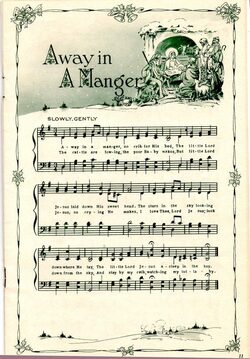
Although legend populates the origins of this song during Martin Luther’s time, evidence suggests it was written in America in 1885 by the German Lutherans in Pennsylvania. Further evaluation notes that metrics were not natural to the German language.
The first two stanzas were printed first in Little Children’s Book for Schools and Families. The third stanza was added later by Charles H. Gabriel, in 1892, who thought a prayer should complete it.
The song presents poor theology. In stanza two “the little Lord Jesus, no crying He makes.” Hearing a baby’s cry at birth is a joyful sigh of life, without it, it is cause for concern. The impression that the infant was superhuman whose divinity overshadowed his humanity, lends to Gnosticism.
During this time, man believed he was closer to death while he slept. So it would be with great comfort to have “Jesus, look down from the sky and stay by my cradle till morning is nigh.”
The final stanza, added later, requests Jesus to “fit us for heaven to live with Thee there.” Implies we are all Christ’s children and our future hope lies in heaven. An improper view of what the gospel actually says.
In spite of who gets the credit of authorship and the poor doctrine, this song gives joy and comfort during this season.
Dr. Hawn is professor of sacred music at Perkins School of Theology, SMU.
http://www.umcdiscipleship.org/resources/history-of-hymns-away-in-a-manger
Go, Tell It on the Mountain
John Wesley Work, Jr. did not write the Negro spiritual, but he can take credit that we still sing it every Christmas. As music was his passion, he collected Negro spirituals to publish in his book the New Jubilee Songs. His second volume included Go, Tell It on the Mountain. Though challenged by his task, as all these songs were passed down orally, from plantation to plantation, he put them on paper to be sung by the Fisk Jubilee Singers. Those singers proclaimed, just as the angels had done outside of Bethlehem to the shepherds, “Jesus Christ is born!” And thanks to John Wesley Work, we can, too.
http://gaither.com/news/%E2%80%9Cgo-tell-it-mountain%E2%80%9D-story-behind-song
God Rest Ye Merry, Gentlemen
The meaning of these words are hard to grasp by the change of language and culture that has taken place over the 500 years since its creation.
In the 15th Century, the church sang dark, somber songs in Latin. Songs of happiness were not permitted in the church. But the common people longed for hope. This song could be heard song by the watchmen as they walked the London streets.
In the Middle Ages, the word “merry” meant “great and mighty. Robin Hood’s merry men are better known as “mighty men.”
By inserting a comma, the original meaning of the song would be clearer, “God make you mighty, gentlemen.”
Today, as we make Christmas “merry,” we rob the message of God Who seeks to make us “Mighty” men and women who can make a difference for Him. At Christmas time, many people experience heartache and pain. We can be mighty men and women telling the difference Christ made by his death. God Rest Ye Merry, Gentlemen is not just a Christmas carol. It’s a rallying song to show the world that at Christmas time, our hope is in Christ.
http://www.oneplace.com/ministries/songtime/read/articles/a-christmas-hymn-story-12185.html
Good King Wenceslas
Written by John Mason Neale about the King (or Duke) of Bohemia (now part of Czech Republic) over 1000 years ago. The story is fiction.
Wenceslas’ father, Duke of Bohemia and Christian, died when he was twelve. Wenceslas couldn’t become Duke until he was 18. His mother, a pagan, took control of the land.
His grandmother, Ludmilla, raised him, smuggling priests into the house to teach Wenceslas Christianity.
His mother banished Ludmilla to a distant castle, where she was murdered by the queen’s guards.
Wenceslas continued to smuggle bishops in at night to teach him the Bible and reading and writing, something rare even for the duke in those days. When he turned 18, he took control of his dukedom, banishing his pagan mother and her followers from the castle.
Wenceslas instilled an education system, law and order for his people. He became the good, kind king of which the carol sings.
When he turned 22, his brother Boleslav plotted, perhaps with his mother, Wenceslas’s death. On his way to celebrate Saint’s Day with his brother, Wenceslas was killed by Boleslav’s followers.
The Czech poet Vaclav Alois Svoboda wrote the poem in 1847. He used several of his “manuscripts” in his attempts to prove that Czech literature was older that it really was.
The poem, written in three languages, Czech, German and Latin, was found by JM Neale in UK in the 19th Century. He put it to the music of a 13th Century spring carol Tempus Adest Floridum (It Is Time for Flowering).
http://www.whychristmas.com/customs/carols_stories.shtml
Here's the link for the next song, Joy to the World.
I write about what matters...to you---
women, wives and moms---
about your family, faith and future.
I write about what's hard, what helps and what heals.
I show you how it's done. And not done.
I hold your hand as you find what matters to the Savior.
And let go of those things that mattered to you, but not to Him.
I write about what matters...to Him.
Sonya Contreras

Author of Biblical fiction, married to my best friend, and challenged by eight sons’ growing pains as I write about what matters.
Receive weekly articles by giving your email address below:

